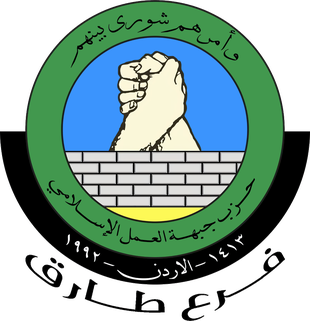Monasticism, also called monachism or monkhood, is a religious way of life in which one renounces worldly pursuits to devote oneself fully to spiritual work. Monastic life plays an important role in many Christian churches, especially in the Catholic, Orthodox and Anglican traditions as well as in other faiths such as Buddhism, Hinduism, and Jainism. In other religions, monasticism is generally criticized and not practiced, as in Islam and Zoroastrianism, or plays a marginal role, as in modern Judaism.
Neutral or neutrality may refer to:
Le Chatelier's principle, also called Chatelier's principle, is a principle of chemistry used to predict the effect of a change in conditions on chemical equilibrium. The principle is named after French chemist Henry Louis Le Chatelier, and sometimes also credited to Karl Ferdinand Braun, who discovered it independently. It can be defined as:
If the equilibrium of a system is disturbed by a change in one or more of the determining factors the system tends to adjust itself to a new equilibrium by counteracting as far as possible the effect of the change

On websites that allow users to create content, content moderation is the process of detecting contributions that are irrelevant, obscene, illegal, harmful, or insulting, in contrast to useful or informative contributions, frequently for censorship or suppression of opposing viewpoints. The purpose of content moderation is to remove or apply a warning label to problematic content or allow users to block and filter content themselves.

In statistics, an interaction may arise when considering the relationship among three or more variables, and describes a situation in which the effect of one causal variable on an outcome depends on the state of a second causal variable. Although commonly thought of in terms of causal relationships, the concept of an interaction can also describe non-causal associations. Interactions are often considered in the context of regression analyses or factorial experiments.

In the social sciences, social structure is the aggregate of patterned social arrangements in society that are both emergent from and determinant of the actions of individuals. Likewise, society is believed to be grouped into structurally related groups or sets of roles, with different functions, meanings, or purposes. Examples of social structure include family, religion, law, economy, and class. It contrasts with "social system", which refers to the parent structure in which these various structures are embedded. Thus, social structures significantly influence larger systems, such as economic systems, legal systems, political systems, cultural systems, etc. Social structure can also be said to be the framework upon which a society is established. It determines the norms and patterns of relations between the various institutions of the society.

The Islamic Action Front is an Islamist political party in Jordan. It is the political wing of the Muslim Brotherhood in Jordan.
In Islam, wasat (moderation) is one of the most basic terms and deliberately used topics. In the sense of shariah, it is a central characteristic of Islamic creed and has been used from the very beginning of Islam. It refers to a justly balanced way of life, avoiding extremes and experiencing things in moderation.
In medicine, a case report is a detailed report of the symptoms, signs, diagnosis, treatment, and follow-up of an individual patient. Case reports may contain a demographic profile of the patient, but usually describe an unusual or novel occurrence. Some case reports also contain a literature review of other reported cases. Case reports are professional narratives that provide feedback on clinical practice guidelines and offer a framework for early signals of effectiveness, adverse events, and cost. They can be shared for medical, scientific, or educational purposes.

In object-oriented programming, an object diagram in the Unified Modeling Language (UML) is a diagram that shows a complete or partial view of the structure of a modeled system at a specific time.

In statistics, a mediation model seeks to identify and explain the mechanism or process that underlies an observed relationship between an independent variable and a dependent variable via the inclusion of a third hypothetical variable, known as a mediator variable. Rather than a direct causal relationship between the independent variable and the dependent variable, which is often false, a mediation model proposes that the independent variable influences the mediator variable, which in turn influences the dependent variable. Thus, the mediator variable serves to clarify the nature of the relationship between the independent and dependent variables.

The Great Moderation is a period in the United States of America starting from the mid-1980s until at least 2007 characterized by the reduction in the volatility of business cycle fluctuations in developed nations compared with the decades before. It is believed to be caused by institutional and structural changes, particularly in central bank policies, in the second half of the twentieth century.
In statistics and regression analysis, moderation occurs when the relationship between two variables depends on a third variable. The third variable is referred to as the moderator variable or simply the moderator. The effect of a moderating variable is characterized statistically as an interaction; that is, a categorical or continuous variable that is associated with the direction and/or magnitude of the relation between dependent and independent variables. Specifically within a correlational analysis framework, a moderator is a third variable that affects the zero-order correlation between two other variables, or the value of the slope of the dependent variable on the independent variable. In analysis of variance (ANOVA) terms, a basic moderator effect can be represented as an interaction between a focal independent variable and a factor that specifies the appropriate conditions for its operation.

Religion and alcohol have a complex history. The world's religions have had different relationships with alcohol, reflecting diverse cultural, social, and religious practices across different traditions. While some religions strictly prohibit alcohol consumption, viewing it as sinful or harmful to spiritual and physical well-being, others incorporate it into their rituals and ceremonies. Throughout history, alcohol has held significant roles in religious observances, from the use of sacramental wine in Christian sacraments to the offering and moderate drinking of omiki in Shinto purification rituals.
In statistics, moderation and mediation can occur together in the same model. Moderated mediation, also known as conditional indirect effects, occurs when the treatment effect of an independent variable A on an outcome variable C via a mediator variable B differs depending on levels of a moderator variable D. Specifically, either the effect of A on B, and/or the effect of B on C depends on the level of D.
National Centrist Party is a parliamentary political party in Libya, launched by former interim oil minister, Ali Tarhouni, on 23 October 2011. It is a centrist political movement, with bases on democracy and religious moderation.
Mitahara literally means the habit of moderate food. Mitahara is also a concept in Indian philosophy, particularly Yoga, that integrates awareness about food, drink, balanced diet and consumption habits and its effect on one's body and mind. It is one of the ten yamas in ancient Indian texts.







